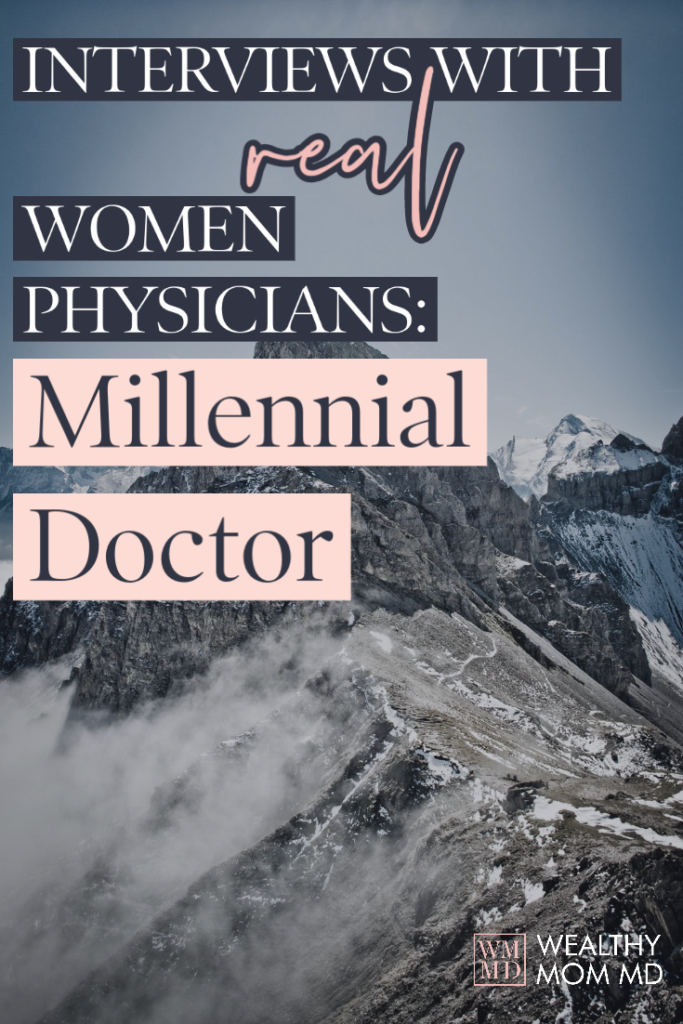Welcome to another installment of Interviews with Real Female Physicians. The goal of this series is to share their story so that you, the reader, may learn and be inspired by their experiences – good and bad. We all come from different backgrounds and have different situations. Some of you are married, some are not, some with kids, some with blended families. Let’s show other women that any of these can work financially!
Tell us about yourself:
Hey there! My name is M and I blog over at Reflections of a Millennial Doctor. I am a happily married 32-year-old DINK (dual income, no kids) working as a Primary Care Internal Medicine-Pediatrics (aka Med-Peds) doctor in the Pacific Northwest, somewhere between Seattle and California’s insane costs of living.
I grew up in Toronto, Canada to Filipino immigrant parents and moved to the Midwest in high school, where I stayed for university, med school and residency. Upon completion of training, I moved out the Pacific Northwest for my first real doctor job, but really it was in chase of mountains, dark craft beer and coffee.
It’s funny how one’s perspective changes over the course of the year – on my blog I write ad nauseum about my journey with burnout and disenchantment with medicine. However, I am to the point now where I’ve realized I still love medicine. I love the puzzle of it, the lifelong learning, the privilege of being able to provide reassurance in people’s darkest moments. What I hate is the business of medicine, the machine it has become.
With that being said – would I choose my specialty again? Yes, I love Med-Peds. If I had it in me to go further, I probably would have done Pediatric Hematology-Oncology and perhaps focused on adult survivorship of childhood cancers, so it would still be within the Med-Peds realm.
If there was just one piece of advice I could give to med students, it would be this: Remember you’re eventually going to return to your life once you’re done with med school and residency training. Make sure you take the time to cultivate that part of you so you actually have something to return to – medicine will happily take everything you have to give if you let it.
Did you graduate with student loans?
I didn’t have loans from undergrad due to scholarships and the generosity of my parents, however, I financed my entire med school education with student loans, graduating with $217,000 at 6.8% interest.
I went to in-state public universities for both undergrad and med school. I also lived at home for all of pre-med and my 2nd and 3rd years of med school, so I consider these as giving myself my own scholarships!

How fast (or not) are you paying them off and how are you paying them off?
I started paying on my student loans in residency – at that time we were putting down $1,500/month and it still didn’t touch the principal! By the time I was done with residency, despite the money we had been putting toward the loans, it had ballooned up to $250,000.
In December after I first started my attending job and replenished our emergency fund, I got serious about paying down my student loans. I didn’t want to be beholden to PSLF in case it went away before my loans were done, and I knew I could pay these off within 5 years.
I researched all of the student loan refinancing options out there and settled on Earnest as it gave me the lowest interest rate at 5% and allowed me to make bi-weekly payments of $2,500. Plus, you can refinance every 6 months, thus I’ve refinanced twice since then:
- Once I hit below $200,000, fixed interest rate lowered to 3.38%
- Once I hit below $140,000, I decided to do a variable loan and got the % down to 2.72% which has since gone up to 2.97%
I am currently debating whether or not I should refinance again back to a fixed APR since interest rates will continue to rise, but I may just use this as more incentive to pay off the last $96,000 sooner.
All in all, I plan on being done with my student loans one year sooner than my initial goal of 5 years.
Financial aspects of kids
We don’t have children, but my husband and I have talked extensively about what we would do if we chose to have kids. My husband would likely quit his job and be a stay at home parent. I would also likely cut back for a time. Being free of my student loans will allow me to do this – another great reason to pay them off sooner.
We are strong believers in public school as we both are products of that system and it’s served us well. Public university is still expensive though, so we’d definitely want to start up 529s.
Financial aspects of marriage
I’m married to J who I’ve been with for almost 15 years – nearly half our lives together which is mind-boggling to think about! We did not get a pre-nup, and quite honestly, it never came up prior to our wedding 8 years ago. It may be naive to think we’d split amicably enough, but I’ve never regretted not having a pre-nuptial agreement.
J and I both remember working minimum wage jobs while we were teens and scouring the $1.97 clearance racks at Old Navy looking for deals on date nights at the mall – we’ve moved a little beyond that now, but not by much. Since we’ve essentially grown into adulthood with each other, we’ve adopted the same minimalist mindset and financial practices. Any purchase above $100 other than groceries merits a discussion, and we (usually just me) hem and haw about things for several months before we (I) commit.
Though I am the breadwinner now, all through med school and residency J filled that role. I can honestly say it hasn’t changed anything in our relationship. Unfortunately, we’ve seen relationships have power dynamics shifts in the home based on money, and that’s not something we’d ever want to emulate. We are of the mindset that if we’re both aiming to improve our home lives then our contributions are equally valued, whether they’re monetary in nature or acts of service.
Financial mistakes:
What financial mistakes have you made?
My biggest financial mistake by far was moving from the Midwest to the West Coast. For comparison, just before residency, we were able to buy a little house for $112,000, albeit at the lowest point of the housing market crash – absolutely unheard of when looking at housing on either coast! If I had stayed in the Midwest, I absolutely would have been done paying off my student loans by now and would probably be able to retire by the time I’m 40.
Do I regret it? Absolutely not.
Moving out to the Pacific Northwest has been like walking into an enchanted forest with mountains and fuzzy trees. I’ve discovered a love of the outdoors I didn’t know I had and reclaimed a passion for photography I thought I’d lost (which I’m documenting on Instagram as a wannabe photographer). I’m 100% the fittest I’ve ever been from all the hiking and running I’ve done out here PLUS I have all the craft beer I could ever want at my disposal.
Maybe this is the millennial in me talking, but if this is the fee I have to pay for #livingmybestlife, so be it.

General Finances
What’s your FI (financial independence) number?
This has been a fluctuating number for me – initially, I had told The Physician Philosopher $4 million, but after looking at it from the lens of pure FI vs our retirement number, I have adjusted my projected FI number to $2 million. This is based on anticipating yearly spending at $80,00 which is quite generous and much more than we’re living on currently, but we anticipate increasing our travel, food/dining budget and possibly throwing in a small human in there.
Assuming I would shuttle the $65,000 I’m putting toward student loans directly into retirement funds after the loans are paid off, I should hit my FI number in less than 10 years. At that point, I would definitely cut back on work.
I would be more comfortable with $3 million for retirement and would likely work until I get to that number.
Who handles the finances in your relationship? Do you DIY or do you have a financial advisor?
I definitely take the more active role in handling finances, but as stated above, pretty much all financial decisions above $100 are discussed. We currently DIY though I do use Wealthfront (a roboadvisor) for my rolled over 401k, Roth IRA and taxable account.
What is your net worth?
Our net worth is $350,000+. This is definitely augmented by our home equity – we bought a foreclosure in the Pacific Northwest which has increased in market value over the last 3 years.
How are you saving for FI/retirement?
As a rule, I’ve maxed out all my tax-deferrable investments. I am using my work’s 401k which is a Vanguard Target Retirement Fund. All of my past 403b’s and 401k’s have been rolled into a Rollover IRA, and past Roth IRAs have been rolled into Wealthfront as well. With Wealthfront, you can max out your risk tolerance settings and the portfolio’s target allocation is adjusted accordingly (stocks > bonds). The majority of the investments are in Vanguard and iShares ETFs/stocks. This is automatically rebalanced when Wealthfront invests the dividends and new automatically transferred funds.
I also have an HSA which I have been maxing out for several years as well and am investing via Lively HSA (which has no minimum requirement before you can invest) via TD Ameritrade, which offers commission-free ETF’s. I manually try to rebalance every time I invest the new funds.
I will be moving into a new job next year that will also open up a private 457b option, which I fully plan on maxing out.
Once my student loans are paid off, I’ll have to figure out where that money will go – likely will be a taxable account.
Biggest financial failure/regret:
I quite honestly don’t have one. I am so incredibly grateful to have had good intentional financial habits from early on. I credit my father for this, as well as having had a job since I was 13. I knew the value of a hard-earned dollar and just how quickly that could disappear on just one item.

Do you have insurance?
I have own-occupation disability insurance but no life insurance or umbrella. The lack of umbrella insurance is such an oversight on my end, and one I will have to remedy ASAP. As for life insurance, we really haven’t felt the need to get that now as my loans would be discharged upon my untimely death, and my husband can support himself. This will need to be addressed in the future.
Do you give to charity?
I volunteer at a free clinic, donate to a couple of charities close to my heart (The Potocki-Lupski Syndrome Foundation and The International Rescue Committee) and always max out my employer’s matched contributions to charity.
This year, in honour of a close friend of mine who was diagnosed with stage 4 colon cancer at the young age of 34, I’ve donated to PALTOWN which oversees Colontown, an amazing group that focuses on patient empowerment and education. I am also currently helping support a cousin of mine through university, so between all of that, it comes up to a tidy sum.
Any parting words of wisdom?
Financial independence is great and all, but sometimes the pursuit of FI distracts from what is most important: a life well-lived.
I often think of Bronnie Ware’s 5 Top Regrets of the Dying:
- I wish I’d had the courage to live a life true to myself, not the life others expected of me.
- I wish I hadn’t worked so hard.
- I wish I’d had the courage to express my feelings.
- I wish I had stayed in touch with my friends.
- I wish that I had let myself be happier.
All the money in the world won’t shield us from these regrets. It is up to us to continue living intentionally and with connection – to ourselves and to others.
Tell readers a fun/random fact about you:
In a past life, my side gig was to play the piano at wedding ceremonies and receptions. I’ve always fantasized about having a baby grand piano, but alas, that would never fit in the tiny house of my dreams.
And finally, where can people connect with you?
I’m apparently everywhere on the internet!
Blog: Reflections of a Millennial Doctor
Instagram: Millennial Doctor – This is definitely where I’m the most active and post daily pictures of my photography and hiking adventures.
Twitter: @Millennial_Doc
Facebook: Reflections of a Millennial Doctor
E-mail: [email protected]

Get the bestselling book - Defining Wealth for Women.



